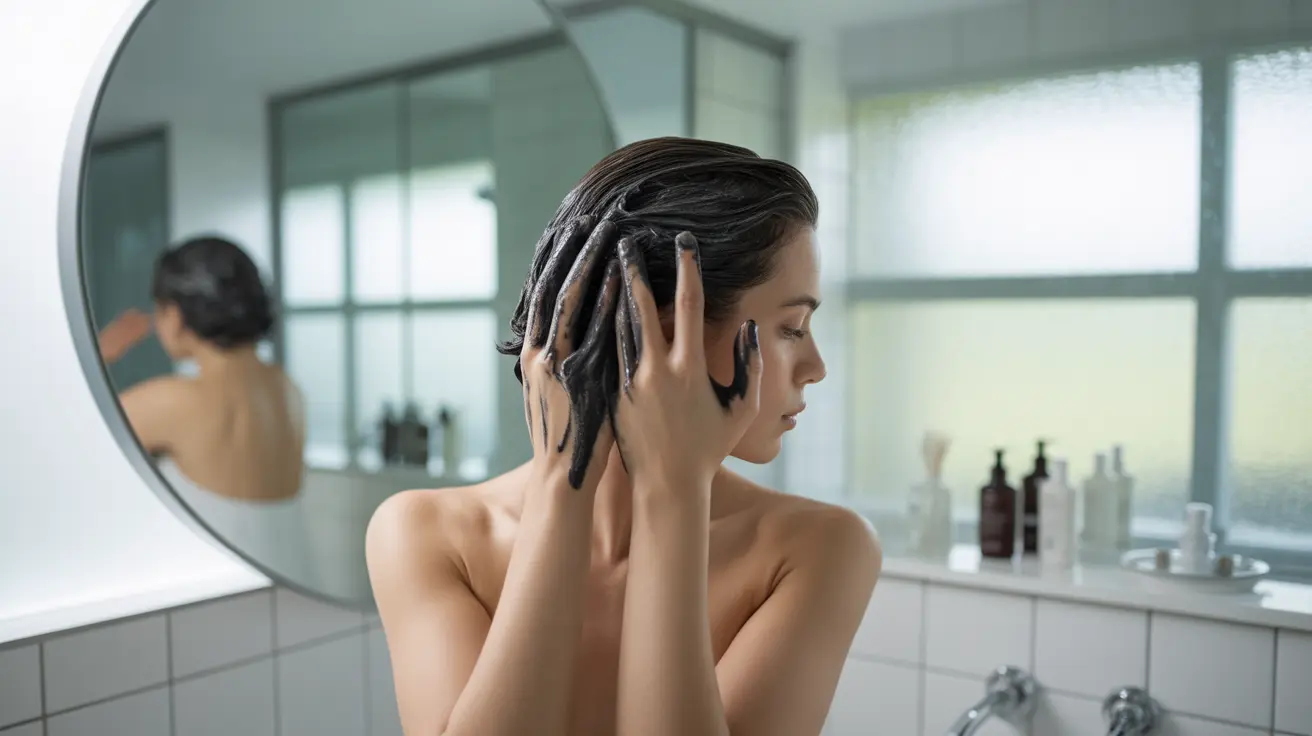Coal tar shampoo is a medicated hair care product that has been used for decades to treat various scalp conditions. This specialized shampoo contains coal tar, a byproduct of coal processing that has proven therapeutic properties for skin and scalp disorders. Understanding its proper use, benefits, and potential risks is essential for anyone considering this treatment option.
Whether you're dealing with persistent dandruff, psoriasis, or seborrheic dermatitis, coal tar shampoo might be an effective solution. Let's explore everything you need to know about this therapeutic hair care product, from its applications to safety considerations.
How Coal Tar Shampoo Works
Coal tar shampoo works through multiple mechanisms to improve scalp health. It helps slow down the rapid growth of skin cells, reduces inflammation, and has both anti-fungal and anti-parasitic properties. These actions make it particularly effective for various scalp conditions that cause flaking, itching, and redness.
Active Ingredients and Their Effects
The main active ingredient, coal tar, typically ranges in concentration from 0.5% to 5%. Higher concentrations are available by prescription for more severe conditions. The tar works by:
- Reducing skin cell turnover rate
- Decreasing inflammation
- Fighting fungal infections
- Alleviating itching and irritation
Treatment Applications
Coal tar shampoo is primarily used to treat several common scalp conditions:
- Psoriasis
- Seborrheic dermatitis
- Chronic dandruff
- Scalp eczema
Proper Usage Guidelines
To maximize benefits and minimize potential side effects, follow these steps:
- Wet hair thoroughly
- Apply shampoo and massage into scalp
- Leave on for 5-10 minutes
- Rinse completely
- Use 2-3 times per week initially
- Reduce frequency as symptoms improve
Safety Considerations and Precautions
While coal tar shampoo is generally safe for most people, there are important safety considerations to keep in mind:
- Avoid sun exposure after application
- Don't use on broken or infected skin
- Keep away from eyes and mucous membranes
- Stop use if irritation occurs
- Consult a healthcare provider before long-term use
Selecting the Right Product
When choosing a coal tar shampoo, consider these factors:
- Concentration of coal tar
- Severity of your condition
- Additional ingredients
- Your hair type
- Previous reactions to medicated products
Frequently Asked Questions
What scalp conditions can coal tar shampoo effectively treat?
Coal tar shampoo is effective in treating psoriasis, seborrheic dermatitis, chronic dandruff, and scalp eczema. It works particularly well for conditions characterized by scaling, flaking, and itching of the scalp.
How should I use coal tar shampoo safely to avoid side effects?
Use coal tar shampoo 2-3 times weekly initially, leaving it on the scalp for 5-10 minutes before rinsing thoroughly. Avoid sun exposure after use, and always perform a patch test before first use. Decrease frequency as symptoms improve.
What are the common side effects of coal tar shampoo and how can I manage them?
Common side effects include skin irritation, photosensitivity, and temporary hair discoloration. Manage these by limiting sun exposure, using sun protection, and reducing usage frequency if irritation occurs. Stop use and consult a healthcare provider if severe reactions develop.
Is coal tar shampoo safe to use long term, and does it increase the risk of cancer?
While coal tar shampoo is generally considered safe for long-term use when used as directed, some studies suggest minimal cancer risk with very long-term exposure. The FDA has approved it as safe for over-the-counter use, but it's wise to discuss long-term use with a healthcare provider.
How do I choose the right coal tar shampoo based on my scalp condition and severity?
Choose a coal tar shampoo based on your condition's severity: start with lower concentrations (0.5-1%) for mild cases and consider higher concentrations for severe conditions. Look for products specifically formulated for your condition, and consider additional ingredients that might benefit your scalp type.




